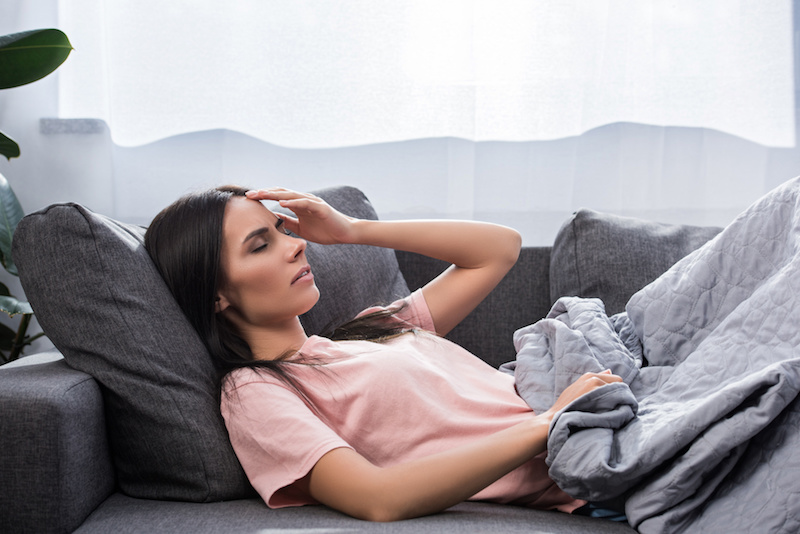ABC reports NSW is facing a major industrial relations headache amid the spread of coronavirus, after some State Government employees were told quarantine periods would come out of their annual leave.
- Employees face losing annual leave or being unpaid during quarantine
- An expert said it could mean vulnerable employees work through quarantine periods
- It comes as a Melbourne doctor continued working and exposed up to 70 patients with the virus
NSW Health employees have been told they can access paid special leave on top of their regular leave entitlements to cover a coronavirus quarantine period. But they will be forced to use annual leave if they visit countries considered cautionary or ruled out by the Federal Government’s Smart Traveller website in the wake of the coronavirus outbreak.
At least one team within NSW Department of Community and Justice was told in writing that travel to (or a stopover in) 10 countries including Italy, China, Japan and Thailand, meant they’d be docked annual leave for two weeks after their return.
The advice broke ranks from official advice on the department’s intranet, which advised special or sick leave would cover self-isolation.
Smart Traveller is advising Australian citizens and permanent residents to self-isolate only if they’ve travelled in China, South Korea and Iran.
The disparity has raised concerns among experts that employees will keep their travel plans secret to avoid being penalised annual leave, placing fellow employees at risk.
Employment lawyer at Sydney-based firm Coleman Greig, Lisa Qiu, said she had been fielding lots of questions about the issue from both employees and employers. Ms Qiu said employees returning from China, South Korea and Iran should be entitled to take personal leave. If personal leave was exhausted, the employee could discuss with their workplace to take unpaid sick leave, or to work from home.
But for those returning from countries experiencing a spike in cases — like Italy — or whose family members had returned from such countries, Ms Qiu said sick leave was typically not applicable. Pending extenuating circumstances like a contract provision, “an employer cannot force an employee to take annual leave,” she said.
“And from a Fair Work perspective and from a legal perspective, the whole purpose of annual leave is to use it for rest and to go on holiday — not for situations like this where you’re being directed by your employer to stay at home.”
Ms Qiu said offering unpaid leave for the isolation period was “a huge disincentive” for workers who could not afford to go unpaid for two weeks.
“When it’s really the employer trying to mitigate their exposure, and they’re trying to be extra cautious by directing the employee to stay at home, and health authorities are not directing them to do that, then that really should be paid leave,” she said.
“If not, employers are taking a risk that they may have sick people coming to work who really should be staying at home.”
Ms Qiu said high-risk workplaces like NSW Health and the Department of Community and Justice may have different rules to protect those more vulnerable to the virus, including the elderly or people who were already sick.
“The standard is going to be different, it’s going to be a lot higher in terms of the precautions the employer or government is taking,” she said.
In a statement, a NSW Government spokesperson said it had a range of options available to employees, including flexible working from home arrangements. “NSW Government staff who are instructed to self-isolate will be granted special leave — this is paid leave and is not linked to annual leave.
“In very exceptional circumstances, staff may be ineligible for special leave if they use private leave and travel to a location where the Government’s Smart Traveller advice is ‘do not travel’ or ‘exercise a high degree of caution’.”
Smart Traveller currently categorises 87 countries under those two classifications.
Unions NSW said the NSW Government should “lead by example” as the biggest employer in the country.
“There should be no barriers for employees taking leave for their health, or for the health of those around them,” secretary Mark Morey said.
He said Unions NSW was advocating a work-from-home policy or a special leave entitlement for all employees affected by coronavirus.
Ms Qiu said the government should make a fund available to employees who needed to self-isolate, otherwise Australian workplaces could expect a major industrial relations headache in months to come.
“In a perfect world, employers would pay that special leave and would tell those employees, they don’t need to take it out from their annual leave entitlement if they don’t have any sick leave left — and the government would compensate those employers for doing that.
She said this was particularly important for worker in high-risk roles.
“You want to make it as easy as possible for them to make the decision to not come to work.”
Source
Coronavirus quarantine raises questions about annual leave and workers’ rights
ABC

